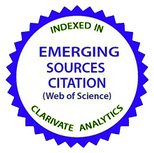The effect of carbon content and cooling rate on the structure of boron-rich Fe–B–C alloys
DOI:
https://doi.org/10.15330/pcss.21.2.355-360Keywords:
structure, cooling rate, crystallization, phase transformations, microdurometric characteristicsAbstract
The structural and phase composition of boron-rich Fe–В–С alloys in the concentration range of 9.0–16.0 % В, 0.001–1.7 % С, Fe – the balance (in wt. %) was investigated in this work. The cooling rate of the alloys was from 10 to 103 К/s. The methods of quantitative metallographic, X-ray, energy dispersive X-ray, and differential thermal analyses were applied. It was established that the maximal solubility of carbon in Fe2B hemiboride does not exceed 0.55 %, and that in FeB monoboride – 0.41 %. The alloys that belong to two-phase peritectic (Fe2(B,C)+Fe(B,C)) region, two-phase peritectic-eutectic (Fe2(B,C)+Fe(B,C)) region, and three-phase peritectic-eutectic (Fe2(B,C)+Fe(B,C)+C) region of the Fe–В–С phase diagram were distinguished depending on their structure. The appearance of an eutectic constituents in the investigated alloys was explained by transition of peritectic reaction L+Fe(В,С)®Fe2(В,С) to eutectic reaction L®Fe(В,С)+Fe2(В,С) within the temperature range of 1623–1583 К in the presence of carbon. With cooling rate increasing from 10 to 103 К/s, structural constituents tended to be fine, their volume fraction changed, microhardness and fracture toughness increased.
References
X. Ren, H. Fu, J. Xing, Y. Yang, S. Tang, Journal of Materials Research 32(16), 1 (2017).
I.M. Spiridonova, E.V. Sukhovaya, V.F. Butenko, А.P. Zhudra, А.I. Litvinenko, А.I. Belyi, Powder Metallurgy and Metal Ceramics 32(2), 139 (1993).
O. Hesse, J. Merker, M.N. Brykov, V.G. Efremenko, Tribologie und Schmierungstechnik 60(6), 37(2013).
I.M. Spiridonova, E.V. Sukhovaya, V.P. Balakin, Metallurgia 35(2), 65 (1996).
O.V. Sukhova, Metallofizika i Noveishie Tekhnologii 31(7), 1001 (2009).
I.M. Spiridonova, O.V. Sukhova, A.P. Vashchenko, Metallofizika i Noveishie Tekhnologii 21(2), 122 (1999).
O.V. Sukhova, Y.V. Syrovatko, Metallofizika i Noveishie Tekhnologii 33(Special Issue), 371 (2011).
Е.V. Sukhovaya, Journal of Superhard Materials 35(5), 277 (2013).
K.I. Portnoi, V.M. Romashov, Powder Metallurgy and Metal Ceramics 5, 48 (1972).
E. Kneller, Y. Khan, Z. Metallkunde 78(12), 825 (1987).
I.M. Spyrydonova, Metallovedenie i Termicheskaya Obrabotka Metallov i Splavov 2, 58 (1984).
E. Schurmann, L. Shao-Xiong, Giessereiforschung 37(4), 121 (1985).
V. Homolova, L. Ciripova, A. Vyrostkova, J. Phase Equilibria and Diffusion 36(6), 599 (2015).
I.M. Spyrydonova, Е.V. Sukhovaya, G.A. Sergeyev, Theory and Practice of Metallurgy 4-5, 57 (2006).
N.Y. Filonenko, E.Y. Beryoza, O.G. Bezrukavaya, Physics and Chemistry of Solid State 5, 168 (2013).
D.A. Petrov, Binary and Ternary Systems (Metallurgy, Moscow, 1986).









